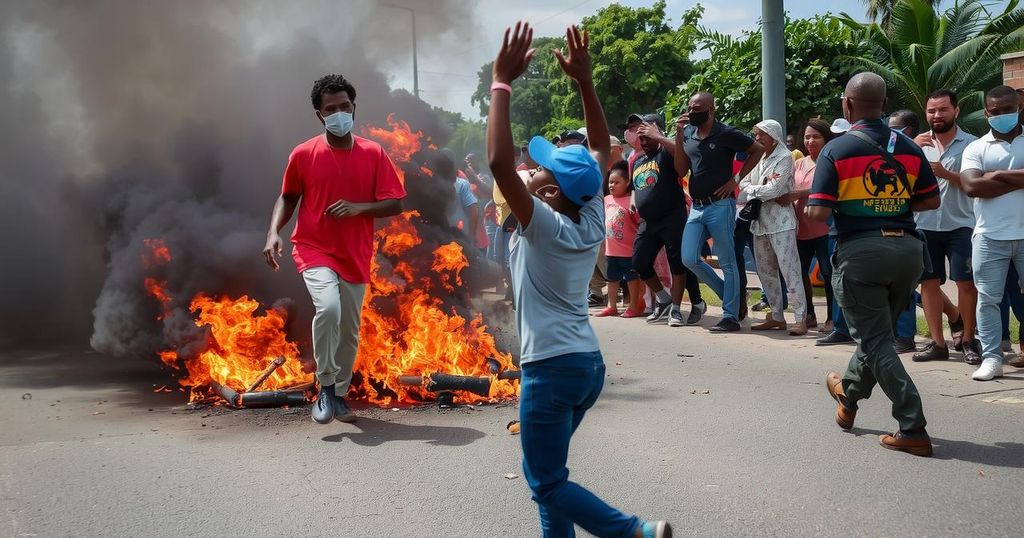Mozambique Faces Violence and Protests Following Election Ruling

Mozambique is experiencing violence after the Supreme Court confirmed Daniel Chapo as the winner of disputed elections held October 9, resulting in 21 deaths, including police officers. The violence, primarily fueled by supporters of the losing candidate Venancio Mondlane, has led to widespread protests and looting across the country.
Following a controversial decision by Mozambique’s highest court that confirmed Daniel Chapo as the victor in the disputed October 9 elections, the nation has erupted in violence. Protests have erupted across the country, resulting in the deaths of 21 individuals, including two police officers. The unrest appears to be predominantly driven by supporters of the defeated candidate, Venancio Mondlane, who garnered 24 percent of the votes compared to Chapo’s 65 percent, creating significant civil unrest and looting in various regions.
Mozambique has a history of contentious elections, which often lead to societal division and unrest. The ruling Frelimo party has faced criticism and challenges from opposition parties, and this recent election was marked by allegations of irregularities. The Supreme Court’s affirmation of Chapo’s victory has reignited tensions among the populace, particularly among the younger supporters of Mondlane. Understanding the political landscape and previous electoral tensions in Mozambique provides context to the current turmoil following the court ruling.
The violence that has erupted in Mozambique following the court’s decision underscores the deep divisions within the country regarding the electoral process. With 21 fatalities reported, including law enforcement officials, it highlights the urgent need for dialogue and reconciliation in order to restore peace and public order. As the situation evolves, the authorities must navigate the challenges of governance amidst heightened public unrest.
Original Source: www.nytimes.com







